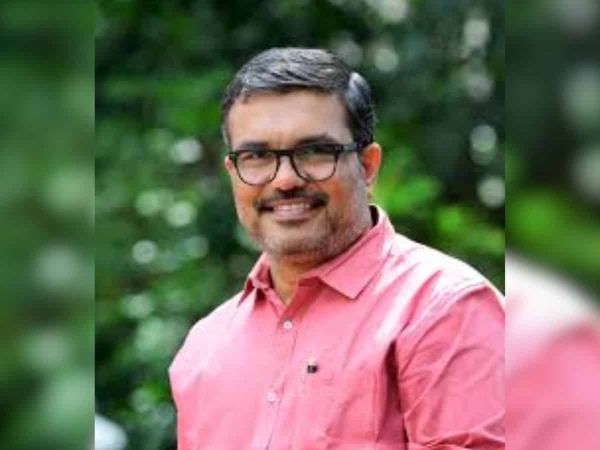
Madurai: With Kerala headed towards assembly polls next year, the CPI(M)-led LDF has pitched the concept of ‘Nava Kerala’, and the state government is “adventurously experimenting” with alternatives for investment amid “constraints imposed by the BJP-led Union government,” Kerala Minister MB Rajesh told PTI.
In an interview with PTI, Rajesh, Minister for Local Self Government of Kerala, said the devolution of Finance Commission to the state has reduced, and borrowing has also been limited.
Amid criticism from within the party folds over recent decisions of the state to allow private universities and inviting private investments for restructuring public sector units (PSUs), Rajesh denied that the Left party was deviating from its policies, and said they have first focused on strengthening government universities and PSUs.
Rajesh said the first communist-led government laid the foundation stone for a modern Kerala in 1957, when they introduced land reforms, educational reforms and that was the basis on which the Kerala model of development was created.
“Kerala social development and human development indicators are widely acclaimed. But by the early 1990s, we realised that this model of development has its own limitations and we have to rejuvenate this model,” Rajesh said.
“We decided that now we need to focus more on economic development with social justice and inclusion. So we need to invest heavily on infrastructure and on social sectors and welfare schemes,” he said.
Rajesh said to sustain the social development and human development indicators, they felt a need to invest more on social sectors and social welfare schemes.
“But at the same time, we have to generate sufficient resources to make more investment.”
He alleged the state has been a “victim of hostile policies of the central government led by the BJP”.
“Kerala’s devolution between the 10th and 15th finance commissions came down by half. The revenue deficit gap and GST compensation have been stopped,” he alleged.
“It became extremely difficult for us to pursue any alternative policy other than neo-liberal policy. But we were not ready to succumb to this pressure. So we are adventurously experimenting with an alternative within these constraints imposed by the BJP-led government,” he said.
Listing the work done by the state, he said they have invested in highways, water metro, digital science park, digital university, schools, hospitals, and within the constraints, the state has not diluted its commitment to social sectors and welfare schemes.
He added that Kerala is the first state to implement urban employment guarantee scheme on the lines of MGNREGS, the only state providing 100 days of additional work under MGNREGS as a state scheme and Kerala is going to be the first state to completely eradicate extreme poverty.
“We are going to achieve this goal by November 1, 2025. Within a few months, we are going to be the first state in the country to completely eradicate extreme poverty,” he said.
“Our approach is that we have to generate resources and focus on economic development without compromising on equity and social justice,” he said.
Asked about Union Finance Minister Nirmala Sitharaman’s recent remarks accusing the successive LDF and UDF governments in Kerala of “reckless policies” have led to a “fiscal crisis” in Kerala, Rajesh dismissed the charge as being politically motivated.
“I dismiss her allegation as politically motivated. Let me clarify. According to the FRBM Act, we are entitled to borrow up to three per cent of state domestic product. But the Union government is not allowing us beyond 2.5 per cent. What is the justification?” he said.
“Our devolution has come down from 3.92 per cent to 1.92 per cent, by half between 10th and 15th Finance Commission. Why has this happened? Because of the advances we have made in health, education and our commitment to population control, we are being penalised by the BJP government,” he said.
With some of the new policies of the state government coming under attack from a section in the party which has questioned the moves allowing private universities, Rajesh defended the move, and said, “We have allowed the setting up of private universities. But we have done that after strengthening our public universities. We are not replacing our public universities with private universities.”
At the ongoing 24th party congress of the CPI(M), a resolution was adopted endorsing the LDF government in Kerala. However, some delegates had questioned the move to allow private universities and private investment in PSUs.
“Our universities have a much better ranking at the national level, and even they are ranked much better by international agencies. Now we have to create more opportunities in higher education. And all that cannot be done by the government alone. So that is why we are allowing private universities,” he said, adding that it will not be without any control and safeguards have been put in place.
“As far as our commitment to the public sector is concerned, we have even protected those central public sector units which the central government has decided to sell off or shut down. One example is KPPL, the former Hindustan Investment Limited which was about to be sold off by the central government. Kerala took part in the tender and we got it,” he said.
“In the last nine years, many public sector units have become profitable. That is because of our support extended to these public sector units. So there is no question of diluting our commitment to public sector,” he added.